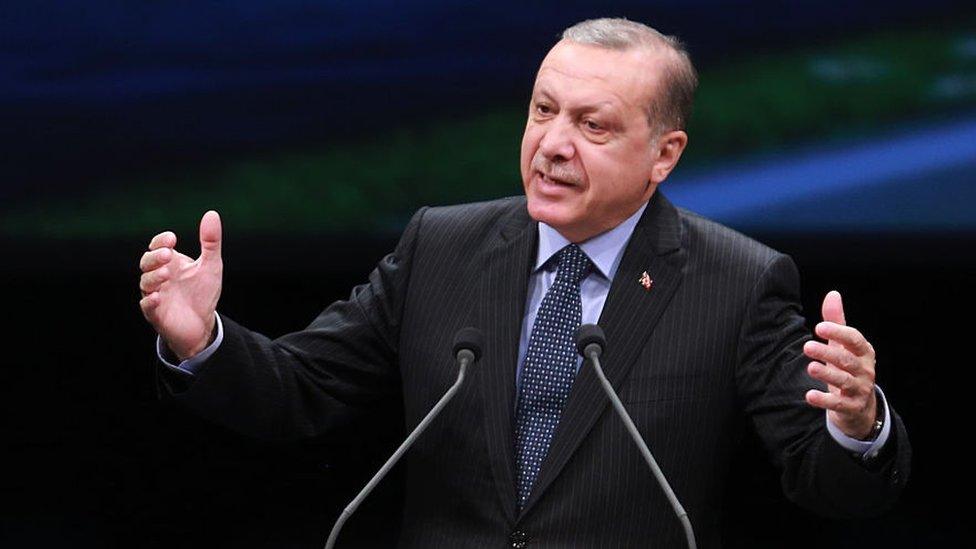Turkey referendum: More rallies banned in Europe
- Published
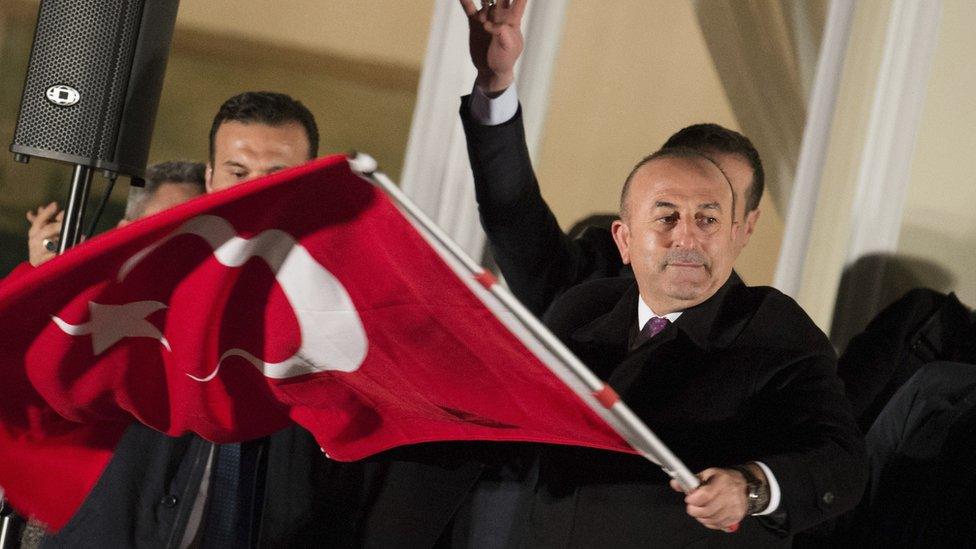
Mr Cavusoglu appeared at the Turkish consulate in Hamburg after rallies in Germany were banned
Officials in several European countries have stopped mass rallies by top Turkish politicians to attract support for a constitutional referendum.
The mayor of Rotterdam said Turkish Foreign Minister Mevlut Cavusoglu could not campaign in the Dutch port because of security concerns.
Meetings in Austria and Switzerland have also been banned.
Recent cancellations in Germany led Turkish President Recep Tayyip Erdogan to accuse Berlin of "Nazi practices".
The comments drew a sharp response from German leaders, with Chancellor Angela Merkel describing the comparison as "unacceptable".
Mr Erdogan is seeking new powers in the 16 April vote.
He is targeting millions of expatriate voters eligible to cast a ballot in the referendum - including 1.4 million in Germany.
Rotterdam Mayor Ahmed Aboutaleb said the owner of the hall that had been scheduled to hold Mr Cavusoglu's event in the city on Saturday had withdrawn authorisation, but the foreign minister could still visit.
"He has diplomatic immunity and everything so we will treat him with respect, but we have other instruments to prohibit things happening in public spaces," he said, quoted by Reuters news agency.
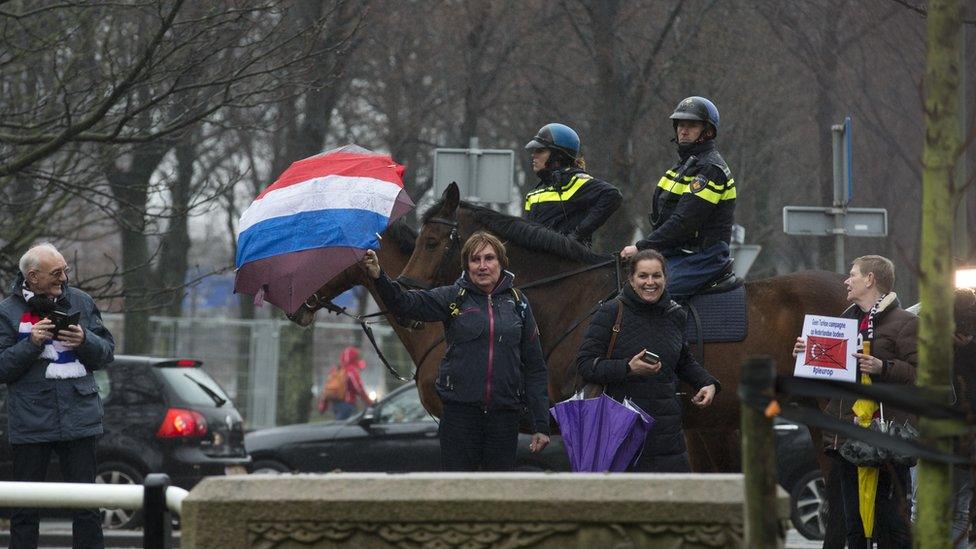
Mr Cavusoglu's visit to the Netherlands has prompted demonstrations by anti-Islam groups
There was also uncertainty about whether an event he was due to attend in Zurich, Switzerland, on Sunday would go ahead after one venue refused to hold it.
Another event in Zurich scheduled for Friday and featuring a senior official was cancelled, as well as rallies in the Austrian towns of Hoerbranz, Linz and Herzogenburg.
The Dutch and Austrian governments have also criticised the Turkish government's drive to take its referendum campaign to Turks based in EU countries.
Relations between Turkey and European countries have deteriorated since last July's attempted coup in Turkey. Germany has been critical of the mass arrests and purges that followed - with nearly 100,000 civil servants removed from their posts and academics among the latest.
Many European nations have expressed deep disquiet about Turkey's response to the coup attempt and its perceived slide towards authoritarianism under President Erdogan.
Turkey is a key partner in an arrangement attempting to limit the movement of migrants into the EU, but has threatened to "open the gates" if the EU reneges on commitments to provide aid, visa-free travel for its nationals and accelerated membership talks.
- Published27 February 2017
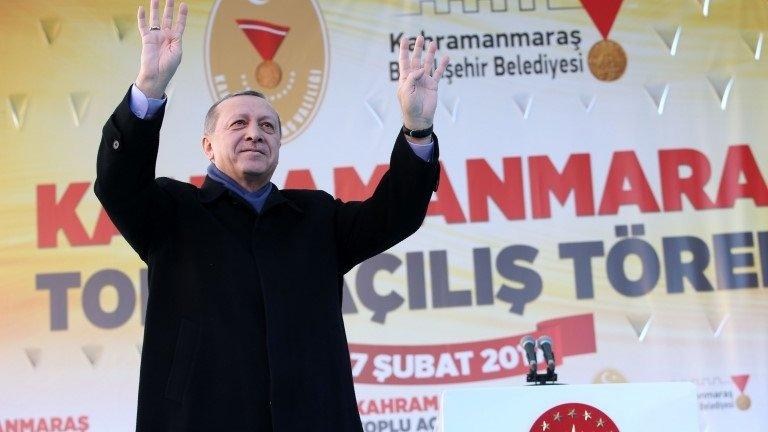
- Published5 March 2017
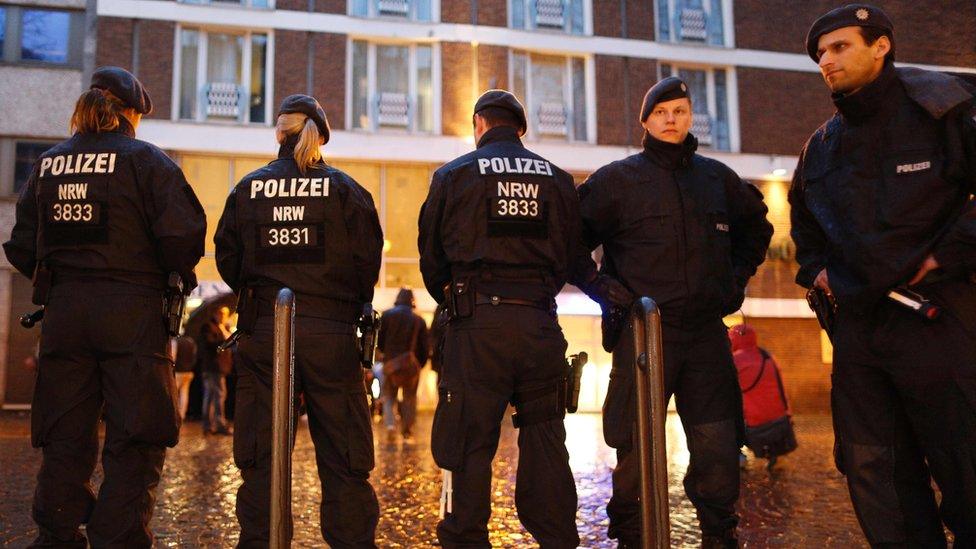
- Published16 April 2017
